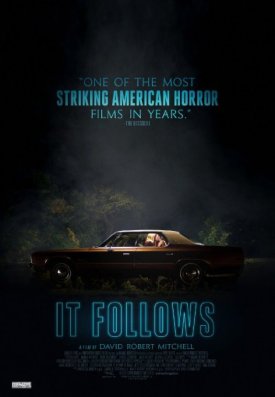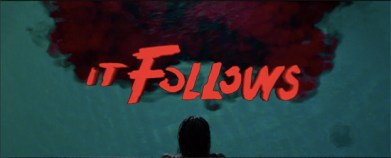Clerk’s Pick
Clerk:
Max, Video Central (Columbus, OH)
Movie:
Swordfish

Pitch:
“Believe it or not, it isn’t because Halle Berry is topless in it. I really like John Travolta’s speeches about movies (and how those sequences are shot). The movie also basically gives away the ending early on, but in a way that you don’t realize it, and it still comes off as a twist. I think it is a more clever movie than it gets credit for, and is worth revisiting.”
Background:
Swordfish tells the story of the planning and execution of an elaborate and technologically advanced heist. The protagonist is a notorious hacker, who has just served a 2-year prison sentence. He is roped into the heist by a mysterious mastermind to handle the programming behind the scenes, but is never given the whole story of what the heist will entail. Of course, the plot features a number of twists and misdirections, and a hearty quantity of explosions.
Swordfish was written and produced by Skip Woods, who has also provided screenplays for Hitman, Sabotage, X-Men Origins: Wolverine, A Good Day to Die Hard, and The A-Team. The director for Swordfish was Dominic Sena, who was also behind such movies as Gone in 60 Seconds, Season of the Witch, and Kalifornia. Likewise, Swordfish was edited by Stephen Rivkin, who has also cut films like Stealth, Avatar, Blackhat, and My Cousin Vinny.
Swordfish required a massive visual effects team due to the complicated nature of a number of the sequences. The team included common elements with films like Avatar, Jingle All The Way, Tank Girl, The Italian Job, Speed, The Abyss, Fight Club, Monkeybone, Minority Report, Judge Dredd, Deep Blue Sea, Cloud Atlas, Jupiter Ascending, and Mystery Men, among others.
The music on Swordfish was provided by Paul Oakenfold, an acclaimed DJ who has had remixes featured in movies like The Matrix Reloaded, Collateral, and Shoot ‘Em Up, and Christopher Young, who has composed scores for films like Sinister, Drag Me To Hell, Spider-Man 3, The Core, and Rounders.
The cinematographer for Swordfish was Paul Cameron, who also shot movies like Deja Vu, Man on Fire, Collateral, and the remake of Total Recall.
The cast of Swordfish is pretty deep, and includes the likes of Hugh Jackman (The Prestige, X-Men, Van Helsing), John Travolta (Battlefield: Earth, Face/Off, The Punisher), Halle Berry (Catwoman), Vinnie Jones (The Midnight Meat Train), Don Cheadle (Hotel Rwanda, Iron Man 2), Sam Shepard (Stealth, The Right Stuff), and Zach Grenier (Fight Club, Mother Night, Deadwood).
Swordfish was nominated for a Golden Raspberry award, which are dishonors given out for the judged worst films and performances of the year. Specifically, John Travolta received a nomination for Worst Actor for his work on Swordfish and Domestic Disturbance, but lost out to Tom Green for Freddy Got Fingered.
The reception to Swordfish has been mixed over the years. Rotten Tomatoes, which primarily tracks contemporaneous reviews of movies from critics, has it at 26% aggregate score. However, IMDb, which tracks reviews continuously from its user base, has it at a significantly higher 6.5 rating.
The budget for Swordfish was estimated to be just north of $100 million. It managed to make a profit on that with a worldwide theatrical gross of just over $147 million, though expectations for it were clearly higher. For comparison’s sake, The Matrix managed to make well over $400 million worldwide on a smaller budget.
Halle Berry reportedly received an extra $500,000 on top of her salary for the movie to do her topless scene, which she apparently agreed to in order to overcome her fear of on-screen nudity.
The opening explosion sequence was, at the time, one of the most complicated visual effects shots in Warner Brothers history. It utilized much of the effects technology that was popularized in The Matrix two years earlier, and required the use of 135 cameras.
Swordfish released just months before the September 11, 2001 terrorist attacks, and is oddly prescient about some of the issues that would follow the event. Notably, Hugh Jackman’s character is said to have hacked into U.S. government files to sabotage a mass program of illegal surveillance of citizens, a program that actually began occurring after 9/11, and was exposed by Edward Snowden.
Review:
First off, Swordfish features too much color filtering, to the point of being obnoxious. That might not have been too distracting at the time, but after years of CSI television shows beating that particular dead horse, it is impossible not to notice. As with many other aspects of the movie, I’m sure this was done based on the influence of The Matrix, which I’ll get to more in a bit.
This might be a bit of a surprise, but I don’t hate John Travolta in this. I always enjoy his hammy acting, particularly in things like The Punisher and Face/Off. However, the writing for his character is incredibly pretentious and sleazy, which I am sure was at least partially intentional. Regardless, he is really easy to hate, but whether that is a positive or a negative is up to the viewer.
In general, the writing for the movie feels edgy for the sake of being edgy, and gives off a tone of pretending to be cooler than it actually is (not unlike Hackers, a similarly computer-themed flick). Everything about the dialogue just comes off as “trying too hard,” which isn’t a vibe you want your movie to give off.
Just about everything about Swordfish‘s aesthetic and style feels intentionally derivative of The Matrix. I mentioned the use of color already, but the music, costumes, effects, and the prominence of computers/hacking in the story-line all combine to make something that looks and feels a little too familiar. This isn’t necessarily objectively bad, and isn’t as noticeable now unless you look into the context of the film, but at the time, all of these similarities would have stood out in bold to both critics and audiences.
Recommendation:
I have mixed feelings about Swordfish. At times, it is genuinely entertaining and interesting, but at others it is unbearably pretentious and hokey. The excessive vigilante patriotism also came off as weird to me, and just doesn’t line up with the hedonistic personality that Travolta’s character was laid out to have throughout the movie. This trait was apparently emphasized more in rewrites on the movie, which resulted in a handful of alternate endings.
If you like heist movies and can handle sitting through the tech nonsense of Hackers, The Net, and The Matrix sequels, then Swordfish is worth sitting through for the occasional good parts. I still think it is more bad than good, but there is definitely entertainment value to it on the whole.
I particularly recommend checking out the We Hate Movies podcast episode on the film for a more detailed walk-through of the movie, and a few other perspectives on the film as a whole.
![Misan[trope]y](https://misantropey.com/wp-content/uploads/2014/10/misantropeyhead1.png)































